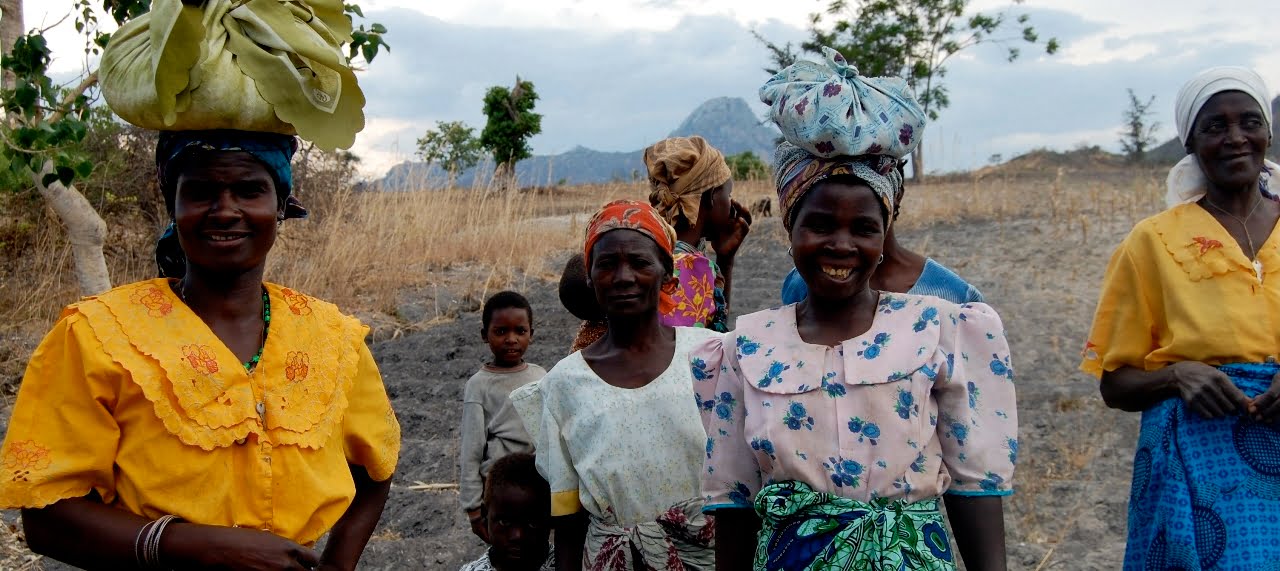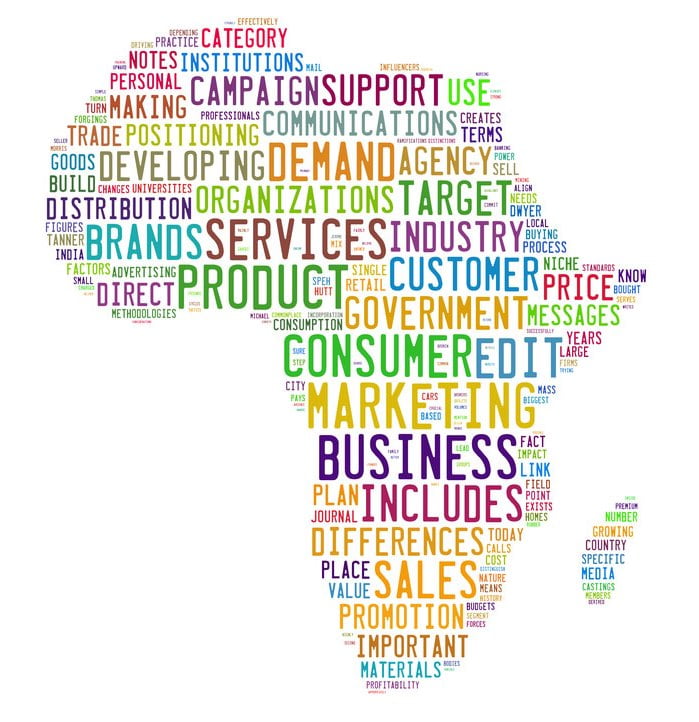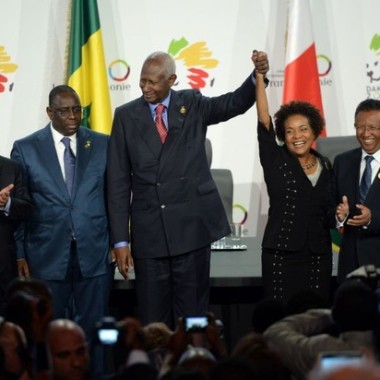Food Processing project for Women Indipendence and Dignity
STRATEGIC APPROACH PAPER | by Edward Ssenyange Programs Director of the Project
INITIATIVE TO IMPROVE THE SOCIOECONOMIC CONDITIONS OF AFRICAN WOMEN AND VULNERABLE GROUPS
Background
According to a recent UNECA Sustainable Development Report on Africa, it is mentioned that Africa is the only continent not on track to meet most of the MDGs by 2015 with gains being reversed by natural disasters and the HIV/AIDS pandemic. Sustainable development in Africa is being undermined by failures associated with good governance, peace and security. It further states that Africa is the most sub-divided continent with small and fragmented economies that undermine the continent’s position in the global development arena. The majority of the population which can also be categorized as vulnerable including women and youth depend on the agricultural sector for their livelihoods. Incomes generated from these activities are quite low because outputs are largely primary products, which fetch very low prices per unit from local and international markets. Despite this scenario, governments have not been able to adequately organize and capacitate the women and disadvantaged populations into feasible productive units. Sustainable development thinking visualizes these feasible units as engines for the enhancement of per capita socioeconomic welfare and consequently impacts on GDP growth of countries in Africa. As part of its mission to impact on Africa’s development, IDA has chosen to undertake interventions to impact on the socioeconomic progress of women and vulnerable groups engaged in the food production and processing sector. Beneficiaries will be empowered to constitute sector societies or cooperatives due to the associated quantitative and qualitative benefits on outputs, storage, packaging and marketing. In order operationalize this mission IDA will develop this important project with strategic partnerships across Africa. These may be national, regional and international in nature. In the case of West Africa, IDA has an agreement with ECOWAS and has by and large started several collaborations with international institutions.

Key Objective of the Program
The program aims to improve socioeconomic conditions of African women and vulnerable groups in beneficiary countries of Africa.
Specific Objectives of the Program
– To promote value addition to agricultural raw materials produced by beneficiaries through support to food processing
– To add ownership, value and recognition to the role of women and vulnerable persons in the development process of Africa
– To improve agricultural production of beneficiaries by quality and quantity through cooperating under feasible entities
– To improve storage, packaging and marketing capabilities
– To facilitate networking and collaboration, sharing of experiences, exposure, and adoption of best practices/replication
Beneficiaries’ of the Program
The program is conceived to primarily benefit women as a key focus and vulnerable groups across targeted countries of Africa. The basis for identifying vulnerable persons will be their non-viable economic capacity to achieve meaningful socioeconomic progress – meaning that the vulnerable persons are those with little or no capacity to exonerate themselves from vicious cycles of socioeconomic misery. Vulnerable persons may not be having access to means of production i.e. land which may be communal or private; labor which includes necessary know-how or skills; capital in terms of money and equipment; and entrepreneurship which is the skill to convert land, labor and capital into money. This is normally realized when one is able to maximize produce, achieve good quality, use safe storage and packaging, and access markets.
Operationalization
At the outset, IDA will identify target countries on the basis of feasibility, risk and other factors as revealed by baseline studies. The proposed intervention will be implemented through establishing strategic partnerships in the various target countries. These will comprise regional organizations like ECOWAS, EAC, NEPAD SADC; civil society organizations working in the agriculture and food processing sector; relevant in country women organizations, faith-based organizations, sector specific organizations, youth organizations, and cooperative societies. These will be identified through various ways which may comprise: reference to previous but relevant baseline studies; actual IDA baseline studies undertaken specifically for this project; and due diligence systems. It is vitally important to mention and in strong terms that IDA will only appreciate and undertake strategic partnerships with entities that have established feasible structures able to reach the final beneficiaries. Identification of partnerships will be followed by participatory and inclusive processes aimed at developing program management tools such as log frames and Monitoring and Evaluation plans. Prospective partners will present to IDA formal applications budgets and work plans which will be subjected to an approval process.
Management, Coordination and Procedures
The program will be coordinated and managed by IDA head office which will provide a secretariat to handle all matters pertaining to the project. It is proposed that in each target country, the program will be steered by an in-country steering committee. This will comprise of implementing partners and led by a Women’s agency. The agency will be responsible for narrative and financial reporting to IDA. Reporting will be based on the approved log frames, M&E plans, work plans, and budgets. The lead organization will also convene monthly progress meetings, which will be useful in establishing successes, bottlenecks and action planning towards solving challenges and moving forward. Detailed procedures for various undertakings will be enshrined in various manuals i.e. Finance and Administration, Human Resource and Operational manuals which will include granting procedures and templates for various purposes such as reporting and contracting. In order for IDA to understand the performance and benefit of its initiatives to the final beneficiaries, it will sponsor mid and end term evaluations, external annual financial audits of all partner organizations, as well as administrative audits. Administrative audits are particularly useful for entities in Africa because it is an area of weakness for several of them and undermines feasibility.

Proposed Activities
It is proposed that activities are undertaken as below:
– Baseline studies in selected countries of intervention
– Identification of pilot investors/funders
– Assessment of Grant Applications from potential partners in money and or kind
– Identification of partners
– Development of program management tools with partnerships
– Disbursement of funds and or equipment to partnerships
– Regular fundraising and visibility initiatives
– Regular communication between IDA and partnerships lead agencies through reporting, updates and feedback
– Networking and collaboration with like-minded organizations across the local regions and the rest of the world including exchange of success stories and contribution of articles to development journals
– Linking partnerships to participation at international trade fares
– Conferencing with lead organizations at joint foras
– Support to All partnerships meetings purposed to share experiences, best practices and induce replication
– Skills training needs assessment for partnerships
– Training for partnerships to cover areas like entrepreneurship, production, processing, packaging, storage, and marketing
– Technical and financial support for in-country steering committee meetings
– Monitoring and Evaluation support purposed to assess program trends and impact
– IDA field visits to partnerships to establish progress, success stories and general rapport
– Mid and End Term Evaluations
– Annual financial audits and periodic administrative audits
Fundraising and Visibility
This will be an ongoing activity throughout the program period to help mobilize substantive resources able to meaningfully impact on the desired socioeconomic change. At an appropriate time, IDA will develop and operationalize a fund raising strategy. Funding agencies will also be considered as partners of IDA in their own right and will be entitled to partnership treatment alongside contractual obligations. A visibility strategy will be developed by IDA but basically, IDA and the implementing partnerships will share information on activities and success stories. These will be edited, loaded onto their websites and shared with other development sector organizations under a networking and collaboration arrangement.

Stakeholders and Sustainability Issues
Key stakeholders will be considered to be the governments, regional development and regulatory bodies; the implementing partnerships, the beneficiaries, funders, and likeminded organizations across the world. Ensuring stakeholder involvement in the project will contribute to its sustainability. It is also of importance to design programs and projects within the confines of existing government policy as well as to encourage good rapport with government agencies. Additionally initial and continued discussions with implementing partners should be able to sieve out their SWOT and help a determination of best choice of activity because once done correctly, it will influence implementation successes. In addition to the above, sustainability issues will be strengthened by supporting feasible projects with forward and backward linkages. IDA will seek to work with groups committed to the development process of Africa and these may include faith based organizations, civil society organizations including women’s economic empowerment advocacy groups that impact on relevant policy design and review. Mainstreaming for increased involvement of women and vulnerable groups in the development process of Africa will remain a central action throughout planning, implementation and assessment of progress. During the final stage of the project it will be ensured that beneficiary ventures tend towards self-sustenance. In this vein it is expected that the various country ventures will be in position to generate reasonable incomes able to accumulate sustenance reserves. However, IDA appreciates that it will also be necessary to support partnerships in the area of fundraising for own resources beyond the scope of the IDA program.
Expected Outcome
It is expected that at the end of the program/project a majority of beneficiaries will be:
– Actively involved in meaningful value added production
– In control over their earnings
– Enjoying improved socioeconomic conditions indicated by improved incomes per person per year and able to afford various necessities for themselves and their families as will be specified in the various log frames and M&E (Monitoring and Evaluation) plans.
– Better organized and involved in feasible and progressive value addition ventures
– Involved in some level of networking with sector stakeholders.
